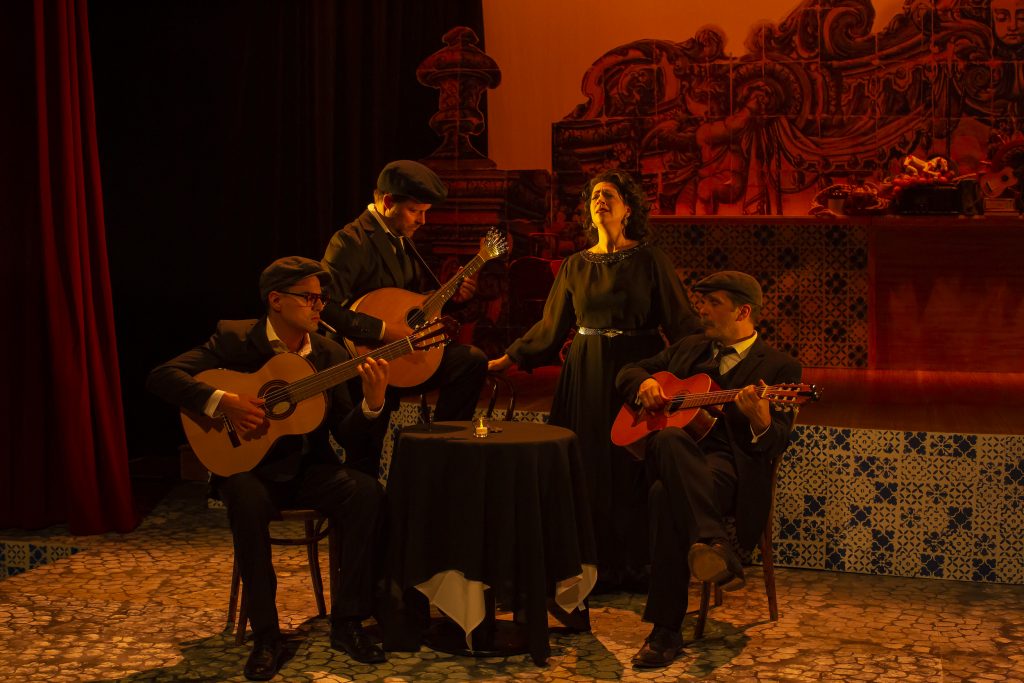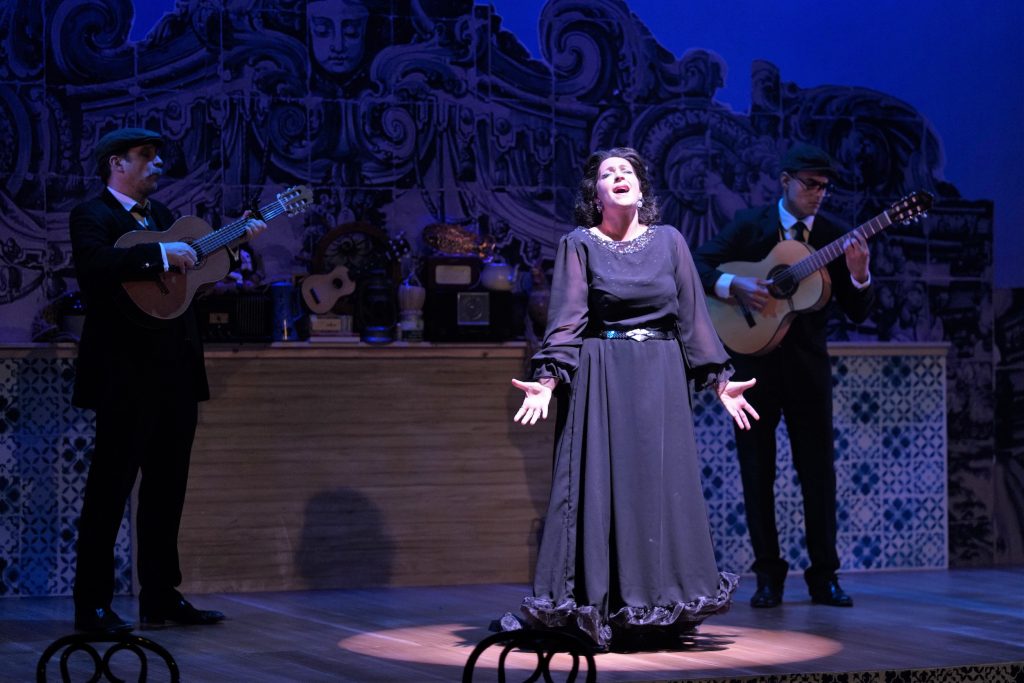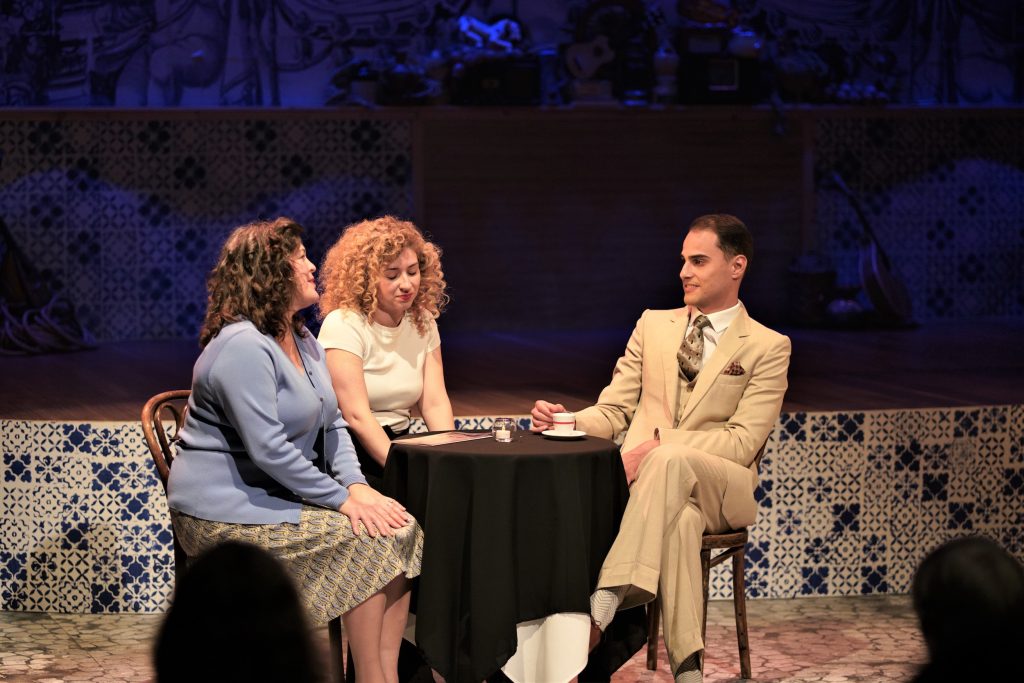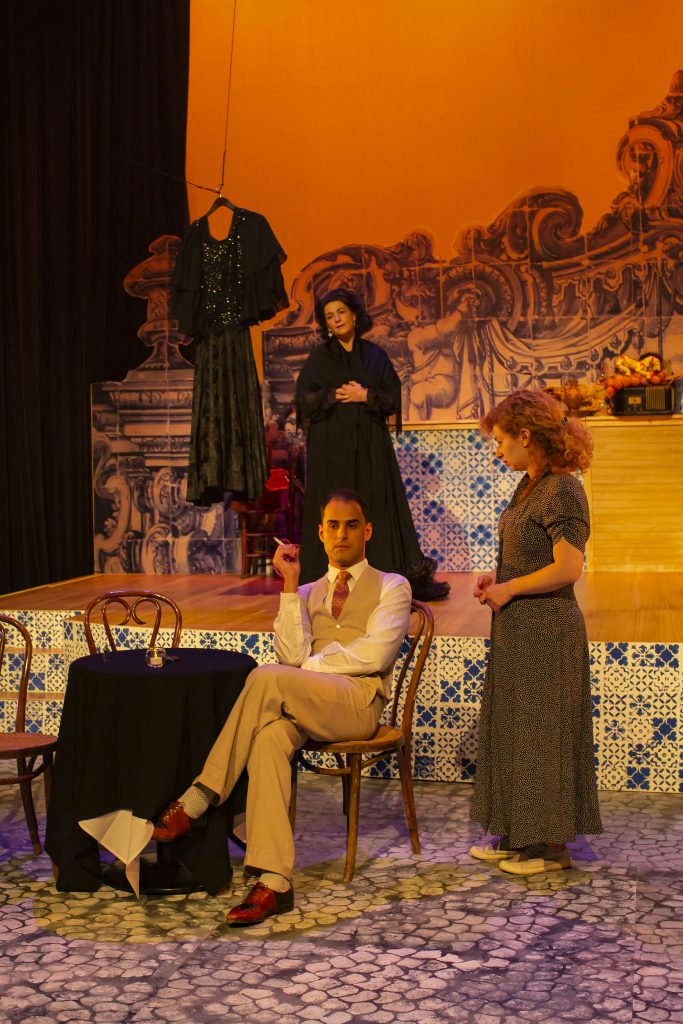
Credit: Derek Ford
At the Firehall Arts Centre until December 14, 2019
Tickets from $25 at firehallartscentre.ca or 604-689-0926
Posted November 24, 2019
Written by Elaine Ávila, Fado: The Saddest Music in the World is a hybrid: part play, part concert. And while the transitions are a little formulaic with the musicians repeatedly mounting an elevated stage to accompany the ghost of fadista Amália Rodrigues (1920-1999) and then returning to the lower level stage where they are part of the contemporary story, the music is well worth the framing of the play.
Fado is a musical genre dating back to the early 19thcentury in Portugal, notably Lisbon and Coimbra. Fado, meaning ‘fate’ or ‘destiny’ is full of longing for the past, for lost loves, for home. Singers of fado are called fadistas; perhaps best known in this part of the world is Mariza who has made several appearances at UBC’s Chan Centre for the Performing Arts.

Credit: Jam Hamidi
According to a 2007 Guardian article by John Lewis, fadista Amália Rodrigues’s rise to international celebrity in the 1940s coincided with the iron rule of dictator António de Oliviero Salazar and unfortunately, fado became associated with fascism. Salazar believed that fado’s nostalgia or painful yearning for the past was anti-modern and “has a softening influence on the Portuguese character, one that sapped all energy from the soul and led to inertia.”
“Young Portuguese deserted the fado in the 1970s,” says Mariza, part of a new wave of fadistas who have reclaimed the genre in recent years. “It had too many bad associations. Only now can we revisit this music.”
Directed by Mercedes Bátiz-Benét with lovely Sara Marreiros portraying the ghost of the iconic Amália, Fado is a fascinating window on Portuguese culture. I don’t know if young Lisboans today dream of becoming fadistas but that is at the heart of this play: young Portuguese-Canadian Luisa (Natasha Napoleao) visits Portugal, for the first time, with her Portuguese immigrant mother Rosida (Lucia Frangione). There, Luisa discovers her passion for fado and finds a teacher in the musician Antonio (Judd Palmer), an old beau of her widowed mother. But it’s not until Luisa’s heart is broken by poet Tristão (Chris Perrins) that she finds the heart and soul of the music.

Credit: Jam Hamidi
In the play we see the ghost of Amália performing in concert sometime in the past. Sara Marreiros, elegantly dressed in a long black chiffon gown is magnificent, swaying slightly, arms outstretched, reaching for – what? Happiness? Love? Home? Translations, appearing in the program, include lines like, “Silence/Out of silence I make a scream/That my whole body hurts/Let me cry a little” or “It was by the will of God/That I live with this agony”. This is hurting music with a Portuguese flavour.
As Luisa connects with her roots as well as with her snappily-dressed cousin Rui (Pedro M. Siqueira), so Rio de Janeiro-born actor Napoleao connects with the music and her character eventually earns the black shawl, emblematic of a true fadista.

Live music is provided by Dan Weisenburger on Portuguese guitar, Judd Palmer and Pedro M. Siqueira, both on guitar.
There’s a wonderful surprise in Fado and one that I did not see coming. You will have to see the show to experience it.
Second night, usually a slow night, was packed at the Firehall so reservations are recommended. Presented by Victoria’s Puente Theatre in cooperation with the Firehall Arts Centre, Fado has obviously struck a chord with the Portuguese-Canadians some of whom, uprooted, might agree with Antonio, “There is no home. There is only the sea. This is fado.”

